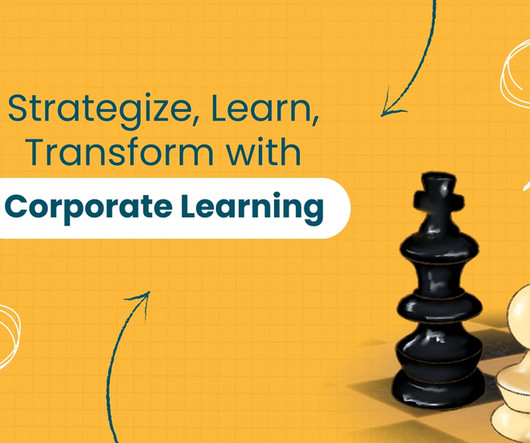Using Peer-to-Peer Learning to Build Collaborative Cultures
Learning Rebels
JUNE 5, 2024
This form of learning leverages the collective expertise within an organization, fostering an environment where knowledge is continuously exchanged and everyone contributes to the growth and success of their peers. Data from a “ People Managing People ” survey supports this shift.
















































Let's personalize your content